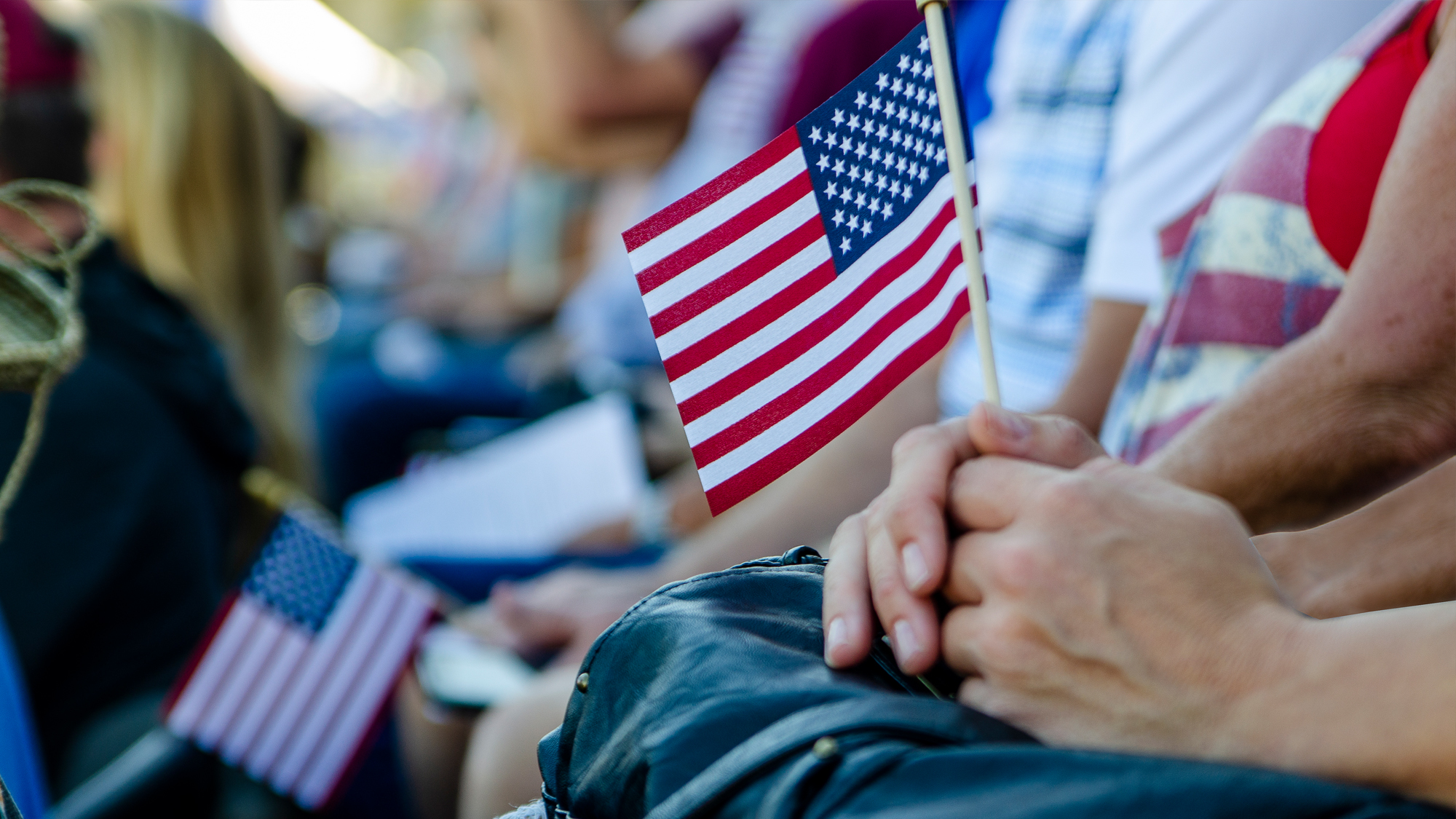Coming to America
Why the melting pot should be a source of national pride

A free daily email with the biggest news stories of the day – and the best features from TheWeek.com
You are now subscribed
Your newsletter sign-up was successful
I feel like I owe some apologies. At the start of the week, this Englishman and his English wife stood in a room with a couple hundred strangers in downtown Manhattan and renounced all "allegiance and fidelity" to any foreign prince (sorry William), potentate (beg pardon Charles III), and state (forgive me Britannia) of which we had "heretofore been a subject or citizen." And after pledging to support and defend the Constitution and laws of the U.S. against all enemies, foreign and domestic, something magical happened: We became Americans. Now, outwardly expressing my joy at this metamorphosis was difficult, because a certain British stoicism — I believe the scientific term is "emotional stuntedness" — is encoded in my DNA. My natural impulse in such moments of wonder is to mutter, "Well, this is a lot of fuss about nothing," and then start talking nervously about scones or the weather. But as a newly minted American, I forced myself to enjoy the occasion, clap, and even, dare I admit it, let out a "Whoop!"
It was an event worth cheering. Few people ever get to decide their nationality; for most it's an accident of birth. But here was a room full of Britons, Russians, French, Dominicans, Chinese, Mexicans, and many other nationalities who'd spent years and sometimes decades working through the labyrinthine immigration system to become Americans. For many, dual citizenship was not an option. Naturalizing in the U.S. meant giving up citizenship in the country of their birth. That's a remarkable sacrifice, but also a testament to the promise of the U.S. While only 67 percent of Americans now say they are extremely or very proud of the U.S. — 23 points lower than in 2003 — many people from around the world still regard this as a nation where they can work toward a better life; a dynamic democracy that is far from perfect but, as Armenian-American historian Vartan Gregorian wrote, is perfectible. For this new American, at least, that's something to be proud of.
This is the editor's letter in the current issue of The Week magazine.
The Week
Escape your echo chamber. Get the facts behind the news, plus analysis from multiple perspectives.

Sign up for The Week's Free Newsletters
From our morning news briefing to a weekly Good News Newsletter, get the best of The Week delivered directly to your inbox.
From our morning news briefing to a weekly Good News Newsletter, get the best of The Week delivered directly to your inbox.
A free daily email with the biggest news stories of the day – and the best features from TheWeek.com
Theunis Bates is a senior editor at The Week's print edition. He has previously worked for Time, Fast Company, AOL News and Playboy.
-
 Why are election experts taking Trump’s midterm threats seriously?
Why are election experts taking Trump’s midterm threats seriously?IN THE SPOTLIGHT As the president muses about polling place deployments and a centralized electoral system aimed at one-party control, lawmakers are taking this administration at its word
-
 ‘Restaurateurs have become millionaires’
‘Restaurateurs have become millionaires’Instant Opinion Opinion, comment and editorials of the day
-
 Earth is rapidly approaching a ‘hothouse’ trajectory of warming
Earth is rapidly approaching a ‘hothouse’ trajectory of warmingThe explainer It may become impossible to fix
-
 ‘The forces he united still shape the Democratic Party’
‘The forces he united still shape the Democratic Party’Instant Opinion Opinion, comment and editorials of the day
-
 ICE eyes new targets post-Minnesota retreat
ICE eyes new targets post-Minnesota retreatIn the Spotlight Several cities are reportedly on ICE’s list for immigration crackdowns
-
 ‘Those rights don’t exist to protect criminals’
‘Those rights don’t exist to protect criminals’Instant Opinion Opinion, comment and editorials of the day
-
 ‘The mark’s significance is psychological, if that’
‘The mark’s significance is psychological, if that’Instant Opinion Opinion, comment and editorials of the day
-
 How did ‘wine moms’ become the face of anti-ICE protests?
How did ‘wine moms’ become the face of anti-ICE protests?Today’s Big Question Women lead the resistance to Trump’s deportations
-
 The UK expands its Hong Kong visa scheme
The UK expands its Hong Kong visa schemeThe Explainer Around 26,000 additional arrivals expected in the UK as government widens eligibility in response to crackdown on rights in former colony
-
 How are Democrats trying to reform ICE?
How are Democrats trying to reform ICE?Today’s Big Question Democratic leadership has put forth several demands for the agency
-
 Democrats push for ICE accountability
Democrats push for ICE accountabilityFeature U.S. citizens shot and violently detained by immigration agents testify at Capitol Hill hearing